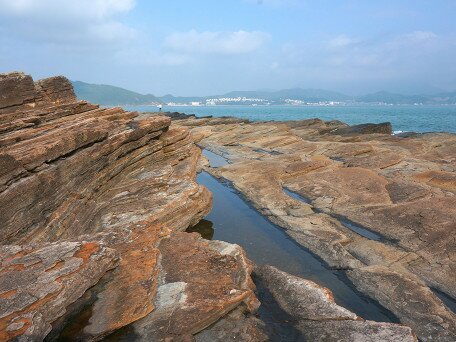Marine conservation and recreational diving activities in marine protected areas of Hong Kong
- 項目計劃:
- 優配研究金
- 項目年份:
- 2019/2020
- 項目負責人:
- 張定安博士

The objectives of our study are to: 1) study the recreational specialisation, environmental attitudes and ecologically responsible behaviours of the recreational divers; 2) explore the relationship between recreational specialisation, pro-environmental attitudes and ecologically responsible behavior of the recreational divers; 3) ... ...
With over 40% of the territory of Hong Kong under statutory protection, the community is now shifting its focus on marine conservation. Although there are five marine parks and 1 marine reserve designated in Hong Kong, less than 1.5% of Hong Kong waters have been designated as marine protected areas. Marine parks play a significant role in preventing further marine environment destruction by pollution and development. However, human activities cannot be completely prohibited as these marine parks act as nature-based destinations to offer recreational activities for visitors. Inappropriate behavior of marine park visitors can impose adverse influences to the marine environment and organisms. Recreational diving is one of the popular activities for people visiting the marine protected areas of Hong Kong. Marine parks such as Tung Ping Chau Marine Parks and Hoi Ha Wan Marine Parks have been a popular destination for snorkeling or scuba diving activities. Understanding the environmental attitudes and ecologically responsible behavior of these recreational divers would be crucial for protecting coral communities and related benthic organisms. The objectives of our study are to: 1) study the recreational specialisation, environmental attitudes and ecologically responsible behaviours of the recreational divers; 2) explore the relationship between recreational specialisation, pro-environmental attitudes and ecologically responsible behavior of the recreational divers; 3) investigate the association between the socioeconomic factors and their environmental attitudes and behaviours of recreational divers, and; 4) provide assistance in the management of marine protected areas with reference to recreational divers. This research will be a pioneer one which combine three different data collection methods including questionnaire surveys, in-depth interview and underwater observation to allow a comprehensive investigation on divers’ behaviours. This research approach could complement the weaknesses of different data collection methods to come up with a more reliable results. Besides, using 360 degree underwater video recording will be a new approach for underwater observation. The video recorder can cover every angle to ensure all divers’ underwater diving behavior will be record. With the new combination and adoption of the research methods, The findings of this study can help in the formulation of visitor management strategies of the marine protected areas in Hong Kong and provide a significant theoretical contribution to this field of study.








